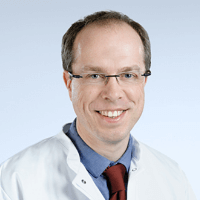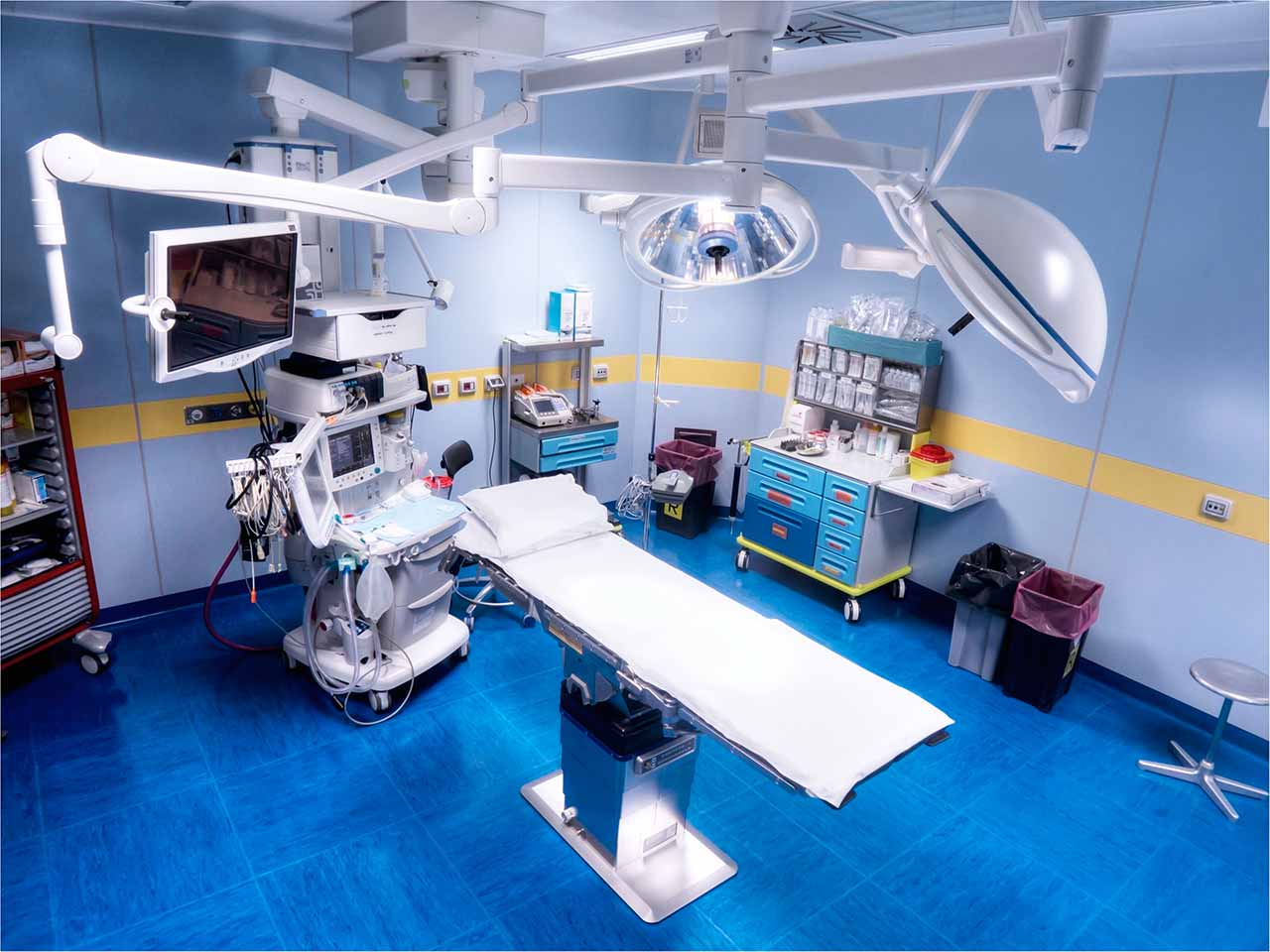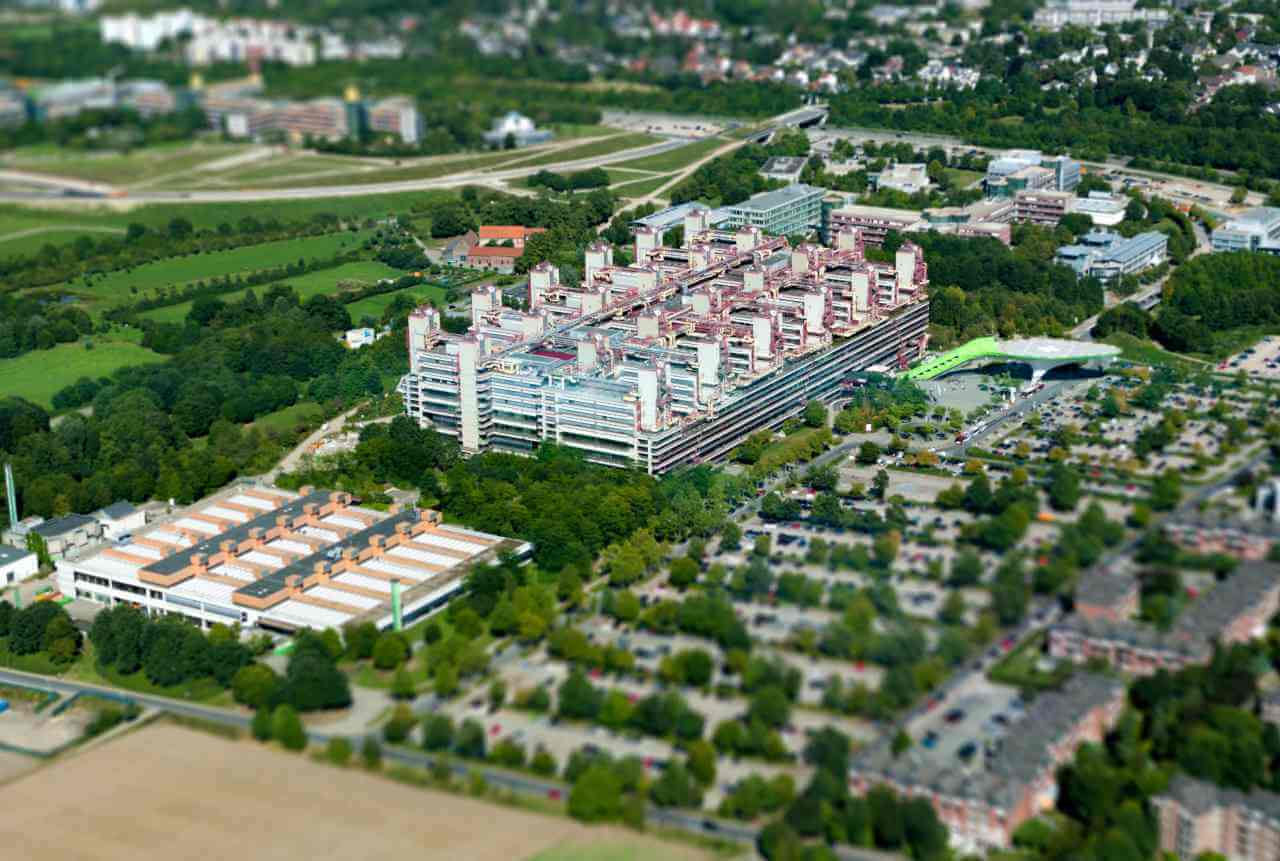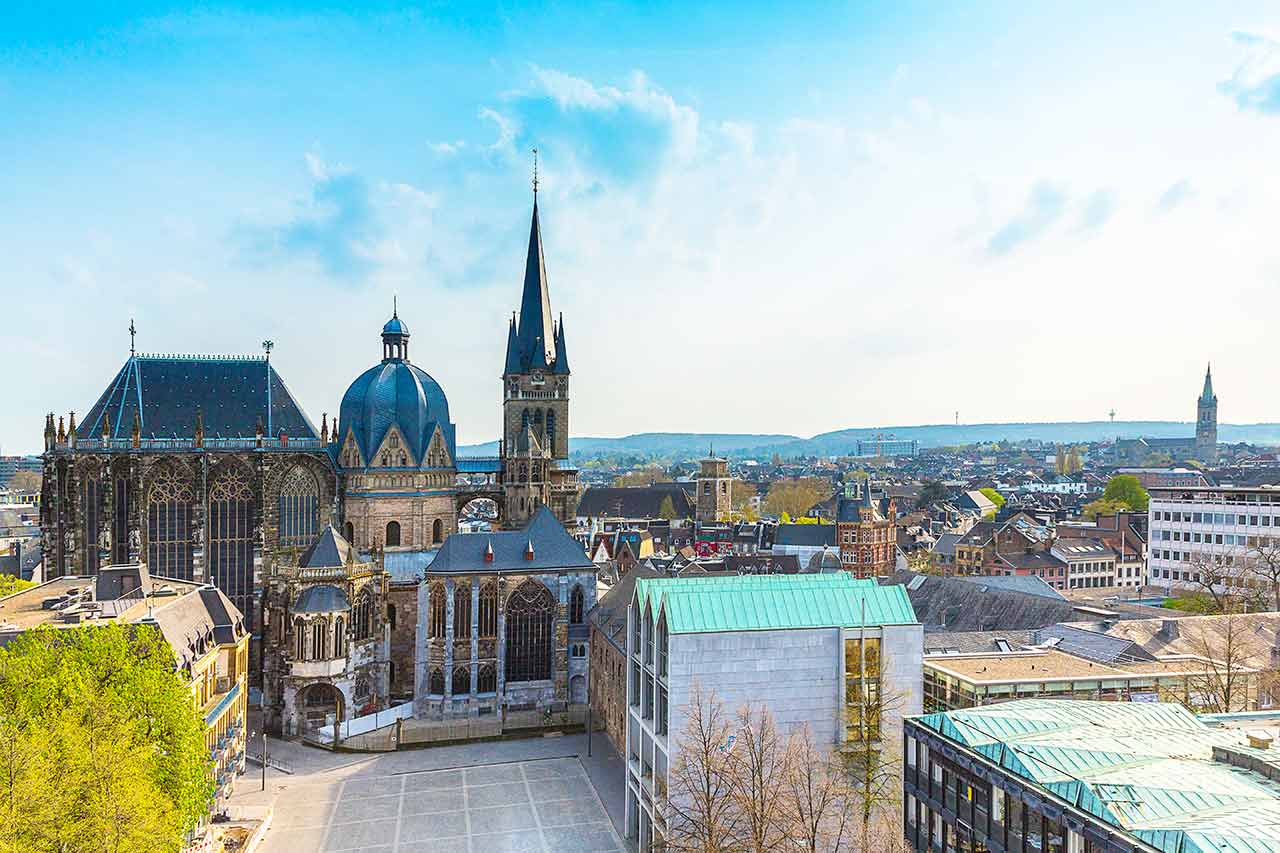
The program includes:
- Initial presentation in the hospital
- Clinical history taking
- Physical examination
- Laboratory tests:
- complete blood count
- biochemical analysis of blood
- TSH, free T3, free T4
- indicators of inflammation
- coagulation tests
- Renal scintigraphy
- Ga-68 DOTATATE PET/CT (if indicated)
- Lutetium-177-DOTATATE treatment
- Full body scintigraphy after 24 hours
- Full body scintigraphy after 48 hours
- Symptomatic treatment
- Cost of essential medicines
- Nursing services
- Stay in the hospital with full board
- Accommodation in 2-bedded room
- Elaboration of further recommendations
How program is carried out
During the first visit, the doctor will carry out a general physical examination and go through the results of previous laboratory and instrumental tests. After that, you will undergo the necessary additional tests such as the assessment of liver and kidney function, scintigraphy of the skeleton and salivary glands, somatostatin receptor imaging with Ga-68 DOTATATE PET/CT. This will allow the doctor to assess how effective the radionuclide therapy with Lutetium-177-DOTATATE will be and how well you will tolerate it. Also, the doctor will calculate your individual dosage of the radionuclide.
Radionuclide therapy with Lutetium-177-DOTATATE is carried out via intravenous administration of a solution with the radioactive isotope Lutetium-177-DOTATATE. The solution is injected through a catheter. This is a short procedure, as the infusion usually takes no more than 20 minutes.
During the procedure, you will need to apply cooling bags to the salivary glands, as Lutetium-177-DOTATATE partially accumulates in the salivary glands, affecting their function and causing dry mouth. You will also receive intravenous saline solutions and amino acid solutions to protect your kidneys.
After the infusion of Lutetium-177-DOTATATE, you will stay in a specially equipped (radiation-shielded) ward for 48 hours. The drug is quickly excreted by the kidneys, and after 48 hours you will no longer be dangerous to others. During these 48 hours, you can read, use a mobile phone, tablet or computer – all these devices will not be a source of radiation in the future.
Follow-up examinations include whole-body scintigraphy or computed tomography in 24 hours and 48 hours after the procedure. Based on the results of the examination, the doctor will determine whether one procedure is enough for you, or whether you will need to visit the hospital again. As a rule, 1-2 procedures are required for achieving a stable positive result. Procedures are carried out with an interval of 8 weeks.
Required documents
- Medical records
- MRI/CT scan (not older than 3 months)
- Biopsy results (if available)
Service
You may also book:
 BookingHealth Price from:
BookingHealth Price from:
About the department
The Department of Nuclear Medicine at the University Hospital RWTH Aachen offers all the modern options of diagnostics and treatment using radioisotopes. Of particular interest in the field of diagnostics are PET, PET-CT, SPECT and scintigraphy. The key attention is also given to the diagnostics and treatment of thyroid diseases (thyroid scintigraphy and radioiodine therapy). In addition, the department's competence covers the diagnostics and treatment of diseases of the joints, prostate cancer, liver tumors, other benign and malignant pathologies. The Chief Physician of the department is Prof. Dr. med. Felix Manuel Mottaghy.
Special attention should be paid to the advanced technical base and outstanding professionalism of doctors. All this allows the doctors to provide medical services of the highest standard, as well as to implement innovative treatment methods into clinical practice. At the center of all the efforts of the department's employees is the patient with his individual needs and wishes.
The service range of the department includes:
- Diagnostics
- Thyroid radioisotope diagnostics
- Radioisotope diagnostics of the heart and lungs
- Kidney radioisotope diagnostics
- Radioisotope diagnostics of abdominal organs
- Scintigraphy of various organs
- SPECT
- Molecular imaging using PET/PET-CT
- 18F-FDG PET/PET-CT (for tumor staging, therapy effectiveness monitoring, diagnostics of dementia)
- 18F-choline PET/PET-CT (for tumor staging, diagnostics of relapse)
- 18 F-FDOPA PET/PET-CT (for tumor staging, diagnostics of relapse)
- 18F-FET PET/PET-CT (for the diagnostics of relapse)
- 18F-florbetapir PET/PET-CT (for the diagnostics of dementia)
- 68Ga DOTATOC PET/PET-CT (for tumor staging)
- 68Ga PSMA PET/PET-CT (for tumor staging, diagnostics of relapse)
- Therapy
- Radioiodine therapy for the treatment of benign thyroid diseases
- Radioiodine therapy for the treatment of malignant thyroid diseases
- Radiosynoviorthesis for the treatment of joint diseases
- Selective internal radiation therapy
- Peptide receptor radionuclide therapy
- 177Lu PSMA therapy for prostate cancer
- Other diagnostic and therapeutic options
Curriculum vitae
Education
- 1990 - 1996 Study of Human Medicine at the RWTH Aachen University and at the University of Utah, Salt Lake City, USA.
- 1995 - 1996 Practical year at the Luisenhospital Aachen (Surgery), at the University of Utah, Salt Lake City, USA (Internal Medicine) and at the University Hospital RWTH Aachen (Neurology).
Qualifications
- 09.12.1996 State Examination in Medicine.
- 09.12.1996 Admission to medical practice (preliminary).
- 1997 1st and 2nd stage of the United States Medical Licensing Examination (USMLE).
- 10.03.1998 Doctoral thesis defense at the RWTH Aachen University.
- 01.09.1998 Admission to medical practice.
- 23.01.2003 Board certification in Nuclear Medicine.
- 23.11.2004 Habilitation.
Professional Career
- 03.1997 - 02.1998 Intern, Department of Nuclear Medicine, University Hospital Duesseldorf.
- 03.1998 - 08.1998 Intern, Department of Neurology, University Hospital RWTH Aachen.
- 09.1998 - 05.2000 Assistant Physician, Department of Nuclear Medicine, Medical Facilities of the Heinrich Heine University at the Juelich Research Center GmbH, Juelich.
- 06.2000 - 05.2001 Scholarship of the German Research Foundation, Department of Neurology, Harvard University, Boston, research focused on multimodal SPECT, MRI and TMS examination on neuroscience issues.
- 06.2001 - 10.2002 Assistant Physician, Department of Nuclear Medicine, Medical Facilities of the Heinrich Heine University at the Juelich Research Center GmbH, Juelich.
- 11.2002 - 01.2003 Acting Head of the Department of Nuclear Medicine, Medical Facilities of the Heinrich Heine University at the Juelich Research Center GmbH, Juelich.
- 02.2003 - 11.2005 Senior Physician, Department of Nuclear Medicine, University Hospital Ulm.
- 12.2005 - 12.2006 Senior Physician and Deputy Head of the Department of Nuclear Medicine, University Hospital Ulm.
- 08.2006 Invitation to the position of Professor of Oncological Nuclear Medicine, Catholic University of Leuven.
- Since 01.2007 Professor of Oncological Nuclear Medicine (Assistant Professor) and Deputy Head of the Department of Nuclear Medicine at the University Hospital Gasthuisberg, Catholic University of Leuven, Leuven, Belgium.
- Since 08.2008 Head and Coordinator of the Working Group on Preclinical Oncological Imaging, MoSAIC KU, Leuven.
- 19.12.2008 Invitation to the position of W3 Professor in Nuclear Medicine, Faculty of Medicine, RWTH Aachen University.
- Since 01.10.2009 Head of the Department of Nuclear Medicine at the University Hospital RWTH Aachen.
Membership in Professional Societies and Organizations
- German Society of Nuclear Medicine (Head of the Committee of Advanced Training).
- European Association of Nuclear Medicine (Active Member of the Cancer Committee).
- European Organisation for the Research and Treatment of Cancer (EORTC) (Active Member of the Imaging Committee).
- Main Reviewer of PET data in the H10 European Researchers (stage II Hodgkin's lymphoma).
- Society of Nuclear Medicine.
- Belgian Society of Nuclear Medicine.
- European Neuroendocrine Tumor Society (ENETS).
- German Society of Endocrinology.
Photo of the doctor: (c) Uniklinik RWTH Aachen
About hospital
According to the prestigious Focus magazine, the University Hospital RWTH Aachen ranks among the top German hospitals!
As a maximum care university medical facility, the hospital guarantees patients first-class medical services combined with a respectful and human attitude. The hospital integrates all the modern options for the accurate diagnostics, effective therapy and productive research activities within one specialized center.
The hospital has more than 60 departments, institutes and interdisciplinary centers. A competent team of professionals, consisting of more than 7,000 employees (more than 940 doctors, including about 95 professors), takes care of the patients' health. In addition, multidisciplinary teams of nurses, physiotherapists, as well as medical and technical staff are available here. The patients and respectful attitude to their social, cultural and religious affiliations are at the center of all employees' efforts.
The cornerstone of the successful clinical practice is the innovative technical base. The hospital offers the most advanced diagnostic and therapeutic equipment. Thus, the hospital has all the resources in order to provide top-class medical services.
Photo: (с) depositphotos
Accommodation in hospital
Patients rooms
The patients of the University Hospital RWTH Aachen live in comfortable single and double rooms. All patient rooms are designed with large windows, so one can enjoy a beautiful landscape view. Each patient room has an ensuite bathroom. The standard room furnishing includes an automatically adjustable bed, a bedside table, a spacious wardrobe, a TV, a radio and a telephone. Also, there is Wi-Fi access.
Meals and Menus
The patient and his accompanying person have a daily choice of three menus. If for any reason you do not eat all the foods, you will be offered an individual menu. Please inform the medical staff about your dietary preferences prior to the treatment.
Further details
Standard rooms include:
Religion
Religious services are available upon request.
Accompanying person
During the inpatient program, an accompanying person may stay with you in a patient room or at the hotel of your choice.
Hotel
During the outpatient program, you can live at a hotel of your choice. Managers will help you to choose the most suitable options.
The hospital offers a full range of laboratory tests (general, hormonal, tests for infections, antibodies, tumor markers, etc.), genetic tests, various modifications of ultrasound scans, CT scans, MRI and PET / CT, angiography, myelography, biopsy and other examinations. Treatment with medications, endoscopic and robotic operations, stereotaxic interventions is carried out here, modern types of radiation therapy are also used. The hospital offers patients all the necessary therapeutic techniques.
- Embolization of tumors and vascular malformations
- Aortic surgery, including in children
- Radiosurgical interventions in the head and body region
- Cochlear implantation
- Treatment of all types of sports injuries
These are pathologies of the brain and spinal cord, benign and malignant tumors of various localizations, congenital and acquired heart defects, joint pathologies, stroke, neurodegenerative diseases, eye injuries, inflammatory skin diseases, allergies and other pathologies.
- Oncology (EU Regional Center for Comprehensive Cancer Care Aachen)
- Pediatric cardiac surgery
- General and abdominal surgery
- Plastic and burn surgery
- Pediatric and adolescent medicine
Over 940 highly qualified doctors work at the hospital.





